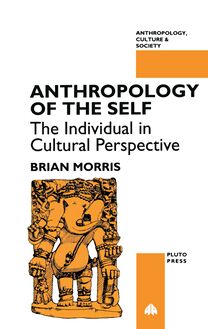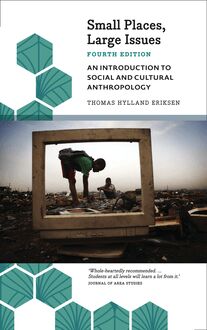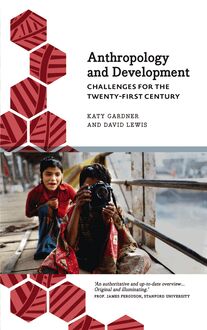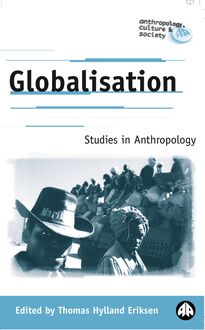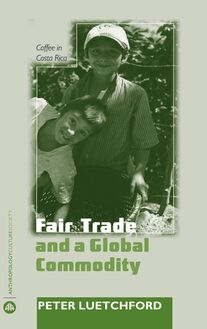-
 Univers
Univers
-
 Ebooks
Ebooks
-
 Livres audio
Livres audio
-
 Presse
Presse
-
 Podcasts
Podcasts
-
 BD
BD
-
 Documents
Documents
-
- Cours
- Révisions
- Ressources pédagogiques
- Sciences de l’éducation
- Manuels scolaires
- Langues
- Travaux de classe
- Annales de BEP
- Etudes supérieures
- Maternelle et primaire
- Fiches de lecture
- Orientation scolaire
- Méthodologie
- Corrigés de devoir
- Annales d’examens et concours
- Annales du bac
- Annales du brevet
- Rapports de stage
La lecture à portée de main
Vous pourrez modifier la taille du texte de cet ouvrage
Découvre YouScribe en t'inscrivant gratuitement
Je m'inscrisDécouvre YouScribe en t'inscrivant gratuitement
Je m'inscrisEn savoir plus
Vous pourrez modifier la taille du texte de cet ouvrage
En savoir plus

Description
*Shortlisted for the BBC Radio 4 Thinking Allowed Award for Ethnography 2015*
This book follows the global trail of one of the world's most unremarkable and ubiquitous objects - flip-flops. Through this unique lens, Caroline Knowles takes a ground level view of the lives and places of globalisation's back roads, providing new insights that challenge contemporary accounts of globalisation.
Rather than orderly product chains, the book shows that globalisation along the flip-flop trail is a tangle of unstable, shifting, ad hoc and contingent connections. This book displays both the instabilities of the 'chains' and the complexities, personal topographies and skills with which people navigate these global uncertainties.
Flip-Flop provides new ways of thinking about globalisation from the vantage point of the shifting landscape crossed by a seemingly ordinary and everyday commodity.
Series Preface
Acknowledgements
Prologue
1. Navigating the Territories of the Trail
2. Oil – Maps beneath the Sand
3. Choreographies of Petrochemistry
4. Plastic City
5. Plastic Village
6. Making Flip-Flops
7. Logistics, Borderlands and Uncertain Landings
8. Markets
9. Urban Navigation in Flip-Flops
10. Rubbish
11. Globalisation Revisited
Notes
Maps
Index
Sujets
Informations
| Publié par | Pluto Press |
| Date de parution | 20 mai 2014 |
| Nombre de lectures | 1 |
| EAN13 | 9781783711512 |
| Langue | English |
Informations légales : prix de location à la page 0,1498€. Cette information est donnée uniquement à titre indicatif conformément à la législation en vigueur.
Extrait
Flip-Flop
Anthropology, Culture and Society
Series Editors: Professor Vered Amit, Concordia University and Professor Christina Garsten, Stockholm University
Recent titles:
Claiming Individuality: The Cultural Politics of Distinction E DITED BY V ERED A MIT AND N OEL D YCK
Community, Cosmopolitanism and the Problem of Human Commonality V ERED A MIT AND N IGEL R APPORT
Home Spaces, Street Styles: Contesting Power and Identity in a South African City L ESLIE J. B ANK
In Foreign Fields: The Politics and Experiences of Transnational Sport Migration T HOMAS F. C ARTER
Dream Zones: Anticipating Capitalism and Development in India J AMIE C ROSS
A World of Insecurity: Anthropological Perspectives on Human Security E DITED BY T HOMAS E RIKSEN , E LLEN B AL AND O SCAR S ALEMINK
A History of Anthropology Second Edition T HOMAS H YLLAND E RIKSEN AND F INN S IVERT N IELSEN
Ethnicity and Nationalism: Anthropological Perspectives Third Edition T HOMAS H YLLAND E RIKSEN
Small Places, Large Issues: An Introduction to Social and Cultural Anthropology Third Edition T HOMAS H YLLAND E RIKSEN
What Is Anthropology? T HOMAS H YLLAND E RIKSEN
Discordant Development: Global Capitalism and the Struggle for Connection in Bangladesh K ATY G ARDNER
Organisational Anthropology: Doing Ethnography in and Among Complex Organisations E DITED BY C HRISTINA G ARSTEN AND A NETTE N YQVIST
Border Watch: Cultures of Immigration , Detention and Control A LEXANDRA H ALL
Corruption: Anthropological Perspectives E DITED BY D IETER H ALLER AND C RIS S HORE
Anthropology’s World: Life in a Twenty-First Century Discipline U LF H ANNERZ
Humans and Other Animals Cross-cultural Perspectives on Human–Animal Interactions S AMANTHA H URN
Cultures of Fear: A Critical Reader E DITED BY U LI L INKE AND D ANIELLE T AANA S MITH
The Will of the Many: How the Alterglobalisation Movement is Changing the Face of Democracy M ARIANNE M AECKELBERGH
Cultivating Development: An Ethnography of Aid Policy and Practice D AVID M OSSE
The Gloss of Harmony: The Politics of Policy Making in Multilateral Organisations E DITED BY B IRGIT M ÜLLER
Contesting Publics Feminism, Activism , Ethnography L YNNE P HILLIPS AND S ALLY C OLE
Food For Change The Politics and Values of Social Movements J EFF P RATT AND P ETER L UETCHFORD
Race and Ethnicity in Latin America Second Edition P ETER W ADE
Race and Sex in Latin America P ETER W ADE
The Capability of Places: Methods for Modelling Community Response to Intrusion and Change S ANDRA W ALLMAN
Anthropology at the Dawn of the Cold War: The Influence of Foundations , McCarthyism and the CIA E DITED BY D USTIN M. W AX
The Making of an African Working Class: Politics, Law, and Cultural Protest in the Manual Workers Union of Botswana P NINA W ERBNER
Flip-Flop
A Journey Through Globalisation’s Backroads
Caroline Knowles
First published 2014 by Pluto Press
345 Archway Road, London N6 5AA
www.plutobooks.com
Distributed in the United States of America exclusively by
Palgrave Macmillan, a division of St. Martin’s Press LLC,
175 Fifth Avenue, New York, NY 10010
Copyright © Caroline Knowles 2014
The right of Caroline Knowles to be identified as the author of this work has been asserted by her in accordance with the Copyright, Designs and Patents Act 1988.
British Library Cataloguing in Publication Data
A catalogue record for this book is available from the British Library
ISBN 978 0 7453 3412 7 Hardback
ISBN 978 0 7453 3411 0 Paperback
ISBN 978 1 7837 1150 5 PDF eBook
ISBN 978 1 7837 1152 9 Kindle eBook
ISBN 978 1 7837 1151 2 EPUB eBook
Library of Congress Cataloging in Publication Data applied for
This book is printed on paper suitable for recycling and made from fully managed and sustained forest sources. Logging, pulping and manufacturing processes are expected to conform to the environmental standards of the country of origin.
10 9 8 7 6 5 4 3 2 1
Typeset from disk by Stanford DTP Services, Northampton, England
Text design by Melanie Patrick
Simultaneously printed digitally by CPI Antony Rowe, Chippenham, UK
and Edwards Bros in the United States of America
For Jess, Will and Sophie
Contents
Series Preface
Acknowledgements
Prologue
1. Navigating the Territories of the Trail
2. Oil – Maps Beneath the Sand
3. Choreographies of Petrochemistry
4. Plastic City
5. Plastic Village
6. Making Flip-flops
7. Logistics, Borderlands and Uncertain Landings
8. Markets
9. Urban Navigation in Flip-flops
10. Rubbish
11. Globalisation Revisited
Notes
Maps
Index
Series Preface
Anthropology is a discipline based upon in-depth ethnographic works that deal with wider theoretical issues in the context of particular, local conditions – to paraphrase an important volume from the series: large issues explored in small places . This series has a particular mission: to publish work that moves away from an old-style descriptive ethnography that is strongly area-studies oriented, and offer genuine theoretical arguments that are of interest to a much wider readership, but which are nevertheless located and grounded in solid ethnographic research. If anthropology is to argue itself a place in the contemporary intellectual world, then it must surely be through such research.
We start from the question: ‘What can this ethnographic material tell us about the bigger theoretical issues that concern the social sciences?’ rather than ‘What can these theoretical ideas tell us about the ethnographic context?’ Put this way round, such work becomes about large issues, set in a (relatively) small place, rather than detailed description of a small place for its own sake. As Clifford Geertz once said, ‘Anthropologists don’t study villages; they study in villages.’
By place, we mean not only geographical locale, but also other types of ‘place’ – within political, economic, religious or other social systems. We therefore publish work based on ethnography within political and religious movements, occupational or class groups, among youth, development agencies, and nationalist movements; but also work that is more thematically based – on kinship, landscape, the state, violence, corruption, the self. The series publishes four kinds of volume: ethnographic monographs; comparative texts; edited collections; and shorter, polemical essays.
We publish work from all traditions of anthropology, and all parts of the world, which combines theoretical debate with empirical evidence to demonstrate anthropology’s unique position in contemporary scholarship and the contemporary world.
Professor Vered Amit Professor Christina Garsten
Acknowledgements
It’s been a long trek and I am indebted to the efforts of many people I have met along the way. First and foremost I would like to thank all of those who contributed their time and their energies to helping me understand their lives and concerns. Ethics and, sometimes, concern for your safety, prevents me naming you, but you know who you are. You may recognise yourself in these pages. My heartfelt thanks are extended to you, my collaborators in Kuwait, Korea, China and Ethiopia. Without you this book could not have been written.
I thank Michael Tan for being my fellow traveller, as well as the photographer, at various points along the trail. The British Academy funded the research on the early parts of the trail. The Leverhulme Trust funded the rest. Clarks Shoes paid for several Ethiopian children to have footballs. I am most grateful for the sponsorship of these funding bodies, and especially for the efforts of Jean Cater. Jane Plastow, Belayneh Abune, Elizabeth Moges, Kibralem Fanta and Daniel Sileshi smoothed the trail through Ethiopia. Fatmah, Mohammed, Samira, Maryam, Quinsan Ciao, Beverly Skeggs, Jeremy Anderson, Abbas Nokhasten, Baker Khundari, Bilal Malkawi, Duncan Brown, Tariq Al Hajji and Geraint Fox helped me navigate Kuwait.
Doonwok Dean Oh, Young Jeon Kim, Miri Song and Susan Choi, helped me understand Korea. Xiuchan explained China to me and introduced me to the right people. He Wenxian, Ms Fan and the students were fabulous. Mohamed Hassan advised on Somalia. Pat Loughrey and Liz Bromley made sure I didn’t go there. Francisco Calafate talked rubbish with me. My colleagues at Goldsmiths Centre for Urban and Community Research, especially Carole Keegan, Alison Rooke, Monica Sassetelli, Roger Burrows and Alex Rhys-Taylor all helped in various ways. Bernard Walsh, Noel Dyck and Claire Alexander provided conversation and critical feedback when it was needed. My students at Goldsmiths kept me on track. Friends and family offered much needed distraction when the going got tough. My thanks especially to June and Eric Litton, Patrick and Anne Knowles, Norma and Chris Jones, Kirsten Campbell and Paul Halliday. Bill Schwarz wielded a red pencil over the manuscript and much improved it, as his relentless good humour enhanced my life while I wrote it. Thanks Bill. My children, Jess, Will and Sophie Knowles-Mofford tolerated the absences and inattentions on which they clearly thrive. This book is dedicated to you with my love.
Without the intervention of my friend and colleague, Vered Amit, the manuscript that became this book would have remained in my wastepaper basket. My thanks to you, Vered, for gently suggesting I take it out and have another go at writing it. I would also like to thank the team at Pluto Press, especially David Castle.
Prologue
You might have a pair of flip-flops, perhaps objects you have not given much thought to. I don’t think about mine; they sit at the back of a closet, suited only to journeys I don’t want to tackle barefoot – to the swimming pool, between the beach and the car park or the terrace – but which don’t call for more formal shoes. Flip-flops are an accessory; they are accessory in being unassuming
-
 Univers
Univers
-
 Ebooks
Ebooks
-
 Livres audio
Livres audio
-
 Presse
Presse
-
 Podcasts
Podcasts
-
 BD
BD
-
 Documents
Documents
-
Jeunesse
-
Littérature
-
Ressources professionnelles
-
Santé et bien-être
-
Savoirs
-
Education
-
Loisirs et hobbies
-
Art, musique et cinéma
-
Actualité et débat de société
-
Jeunesse
-
Littérature
-
Ressources professionnelles
-
Santé et bien-être
-
Savoirs
-
Education
-
Loisirs et hobbies
-
Art, musique et cinéma
-
Actualité et débat de société
-
Actualités
-
Lifestyle
-
Presse jeunesse
-
Presse professionnelle
-
Pratique
-
Presse sportive
-
Presse internationale
-
Culture & Médias
-
Action et Aventures
-
Science-fiction et Fantasy
-
Société
-
Jeunesse
-
Littérature
-
Ressources professionnelles
-
Santé et bien-être
-
Savoirs
-
Education
-
Loisirs et hobbies
-
Art, musique et cinéma
-
Actualité et débat de société
- Cours
- Révisions
- Ressources pédagogiques
- Sciences de l’éducation
- Manuels scolaires
- Langues
- Travaux de classe
- Annales de BEP
- Etudes supérieures
- Maternelle et primaire
- Fiches de lecture
- Orientation scolaire
- Méthodologie
- Corrigés de devoir
- Annales d’examens et concours
- Annales du bac
- Annales du brevet
- Rapports de stage
